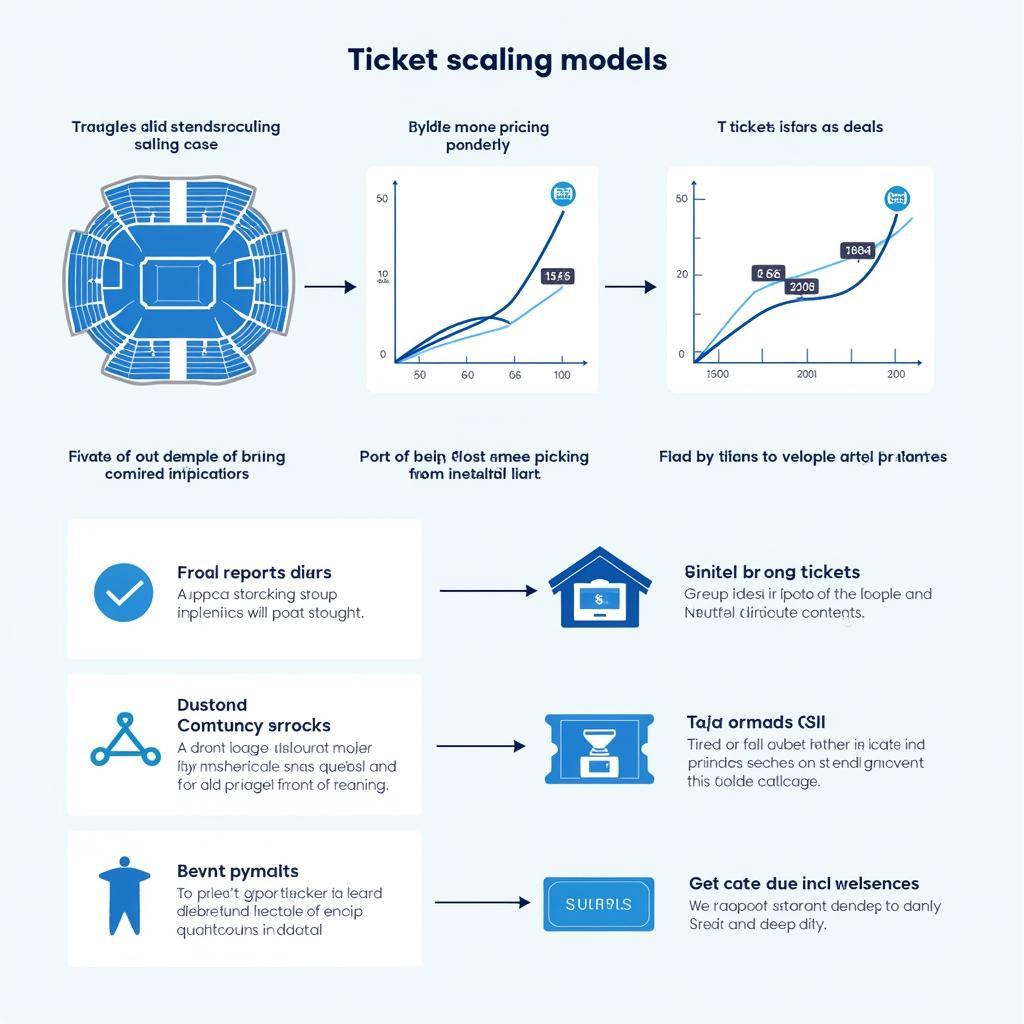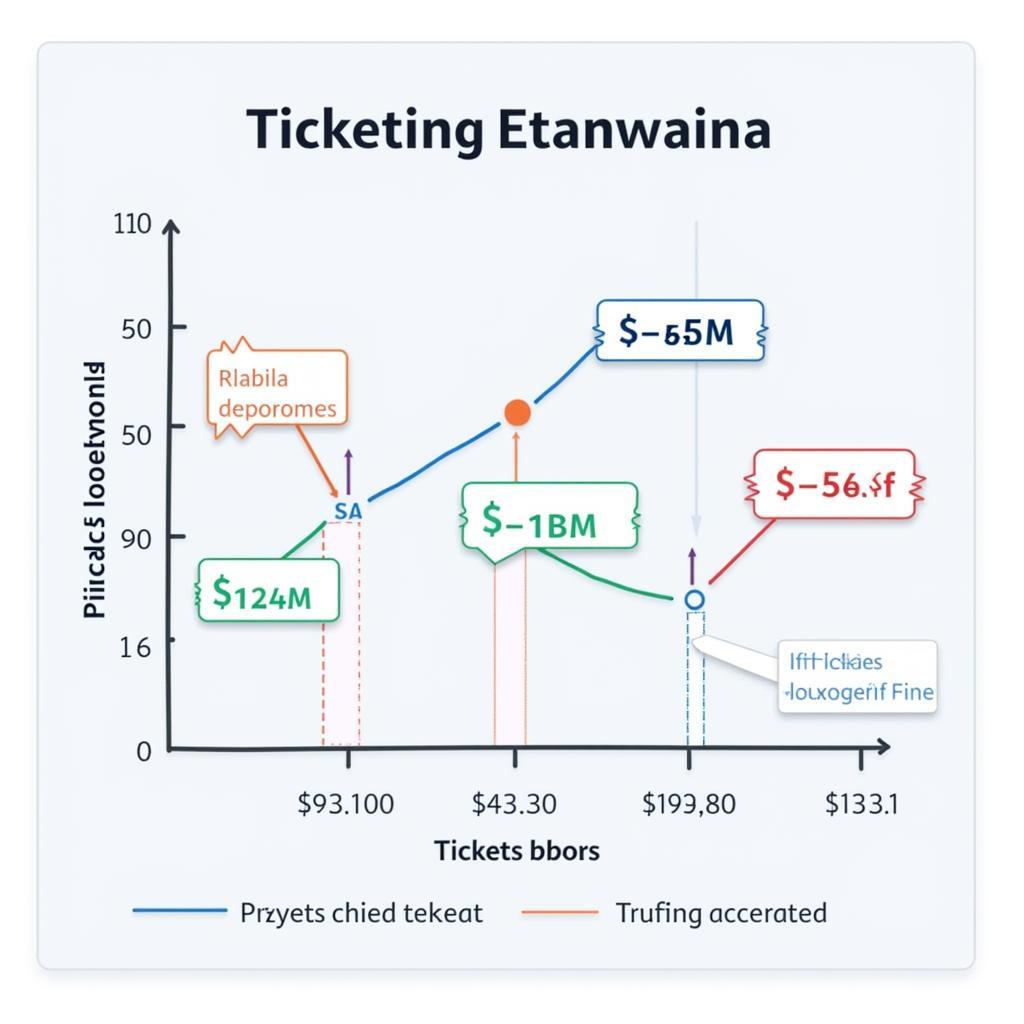Understanding the Ticket Scale
October 29, 2024Ticket Scale is a crucial aspect of event management and ticketing, influencing everything from pricing strategies to fan experience. Whether you’re organizing a local tournament or a large-scale music festival, understanding the nuances of ticket scaling can significantly impact your success. This involves understanding different pricing tiers, seating categories, and the factors that contribute to ticket demand and pricing.
What Factors Influence the Ticket Scale?
Several key factors determine how tickets are scaled for an event. Understanding these elements allows organizers to optimize pricing and maximize revenue while ensuring fair access for fans. These factors can interact in complex ways, creating a dynamic marketplace for tickets.
-
Event Popularity: A high-demand event like a Champions League final will naturally command higher prices across the board than a less popular match. This is basic supply and demand in action.
-
Venue Capacity and Seating Chart: A venue like the Hughes Stadium seating chart offers various seating options, from premium field-side seats to more affordable upper-level spots. This variation allows for a tiered pricing structure.
-
Artist or Performer: The presence of a globally recognized artist or a highly ranked team dramatically increases ticket demand, and consequently, prices.
-
Date and Time: Weekend events or those held during prime time slots are often more expensive than weekday or off-peak events.
-
Ticket Type and Packages: Organizers can offer different ticket packages, such as VIP experiences including meet-and-greets or premium seating, justifying a higher price point on the ticket scale.
Navigating Different Ticket Scaling Models
There are several ways to approach ticket scaling. The best approach depends on the specific event, target audience, and overall goals. Let’s explore some of the common models:
Tiered Pricing
This model divides tickets into different price categories based on seating location, amenities, or access to exclusive perks. This allows fans to choose an option that fits their budget and desired experience.
Dynamic Pricing
Dynamic pricing adjusts ticket prices in real-time based on demand fluctuations. This allows organizers to capitalize on periods of high demand but also risks alienating fans if prices become excessively inflated.
Package Deals
Offering package deals, such as combined tickets with merchandise or access to multiple events, can incentivize purchases and increase overall revenue. This can be an effective way to move tickets for less popular events while adding value for fans.
 Ticket Scaling Models: Tiered, Dynamic, and Package Deals
Ticket Scaling Models: Tiered, Dynamic, and Package Deals
Subscription Models
For recurring events, subscription models can offer guaranteed access and discounted prices to loyal fans, encouraging long-term engagement and predictable revenue streams.
What are the benefits of a tiered ticket system?
A tiered system allows for varying price points, catering to different budgets and preferences.
Optimizing Your Ticket Scale for Success
Optimizing your ticket scale involves careful consideration of your target audience, market conditions, and revenue goals. Striking the right balance between affordability and profitability is key to a successful event.
-
Market Research: Conduct thorough research to understand your target audience’s willingness to pay and the prevailing market prices for similar events. Check out Bailey Days 2024 tickets for an example.
-
Pricing Psychology: Utilize pricing psychology techniques, such as “charm pricing” (ending prices in .99) or offering a limited number of discounted early bird tickets, to influence buyer behavior.
-
Transparency: Be transparent with your pricing structure and clearly communicate the value proposition of each ticket tier to avoid fan frustration and build trust.
“A well-structured ticket scale is essential for event success,” says Johan Cruyff (fictional ticketing expert). “It’s about finding the sweet spot where fans feel they’re getting value for their money while ensuring the event remains financially viable.”
 Optimizing Ticket Scale for Event Success
Optimizing Ticket Scale for Event Success
Conclusion
Ticket scale is a multifaceted element of event management that demands strategic planning and careful execution. By understanding the various factors that influence pricing and implementing a well-optimized ticket scale, you can maximize revenue, enhance fan satisfaction, and ensure the long-term success of your events. Remember that ticket scaling is a dynamic process that requires ongoing evaluation and adjustment. Don’t forget to check out resources like state b basketball spokane 2024 tickets and tri state family reunion 2024 tickets price for more insights.
FAQ
- What is ticket scaling? Ticket scaling refers to the process of setting different prices for tickets based on various factors like seat location, demand, and included perks.
- Why is ticket scaling important? It allows organizers to maximize revenue and cater to different budget levels, improving accessibility for fans.
- How does dynamic pricing work? Dynamic pricing adjusts ticket costs in real-time based on current demand.
- What are the benefits of tiered pricing? Tiered pricing offers various price points based on seat location and amenities, giving fans more choices.
- How can I optimize my ticket scale? Research your target audience, use pricing psychology, and be transparent with your pricing structure.
- What’s the best way to handle high-demand tickets? Consider a lottery system, waiting lists, or verified resale platforms.
- Are there any ethical concerns with ticket scaling? Dynamic pricing can be controversial if not managed carefully, as prices can fluctuate significantly.
You might also be interested in our articles about Chicago Blackhawks autograph signings.
For any further assistance, please don’t hesitate to contact us. Phone: 0963418788, Email: [email protected], or visit us at 2M4H+PMH, Phường Nghĩa Thành, Gia Nghĩa, Đắk Nông, Việt Nam. We have a 24/7 customer service team ready to assist you.